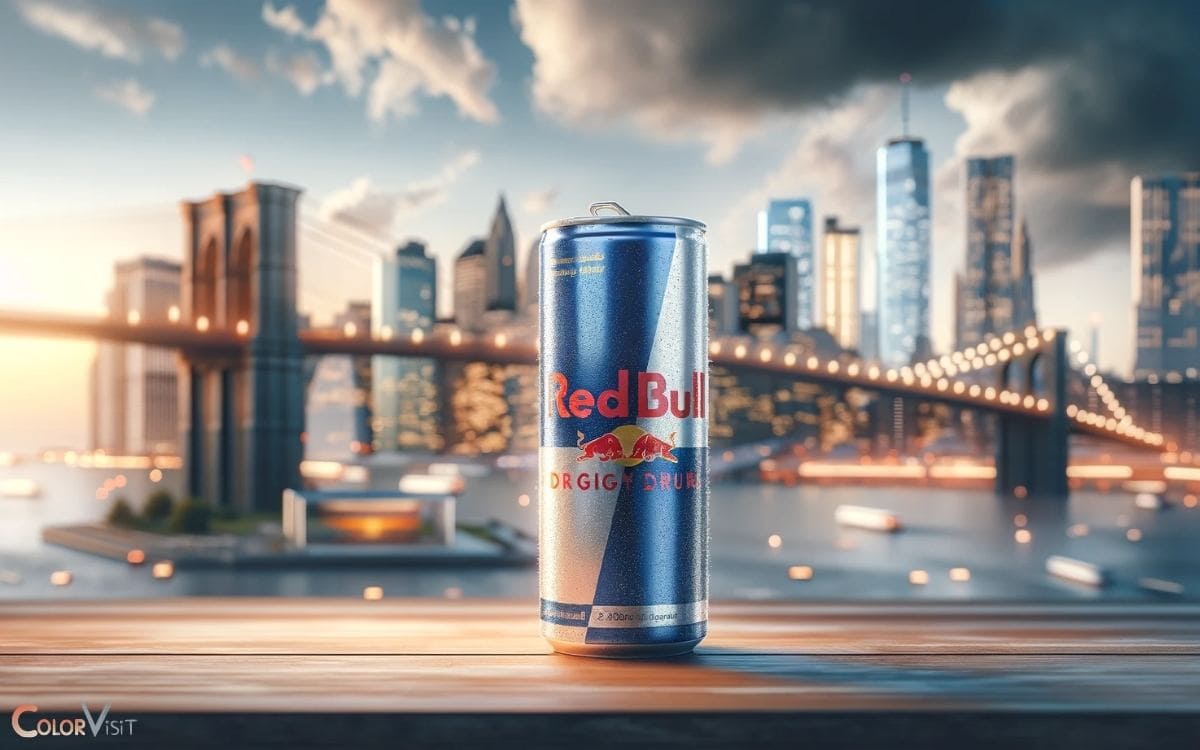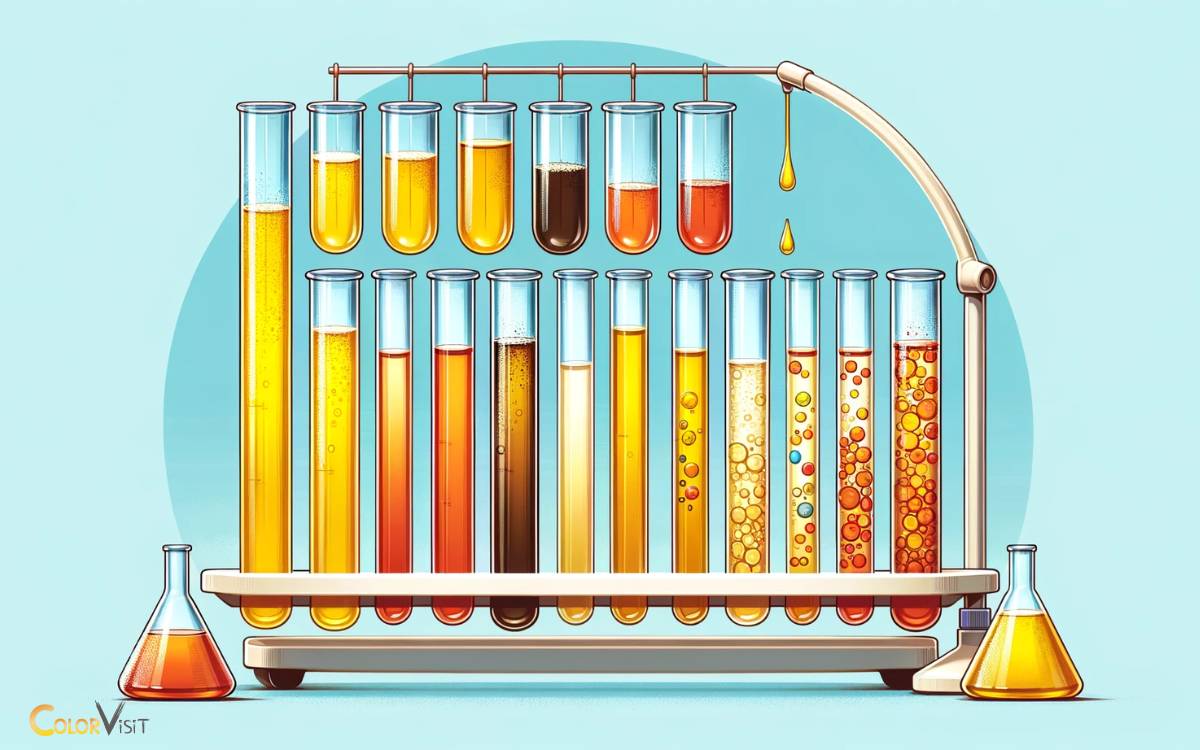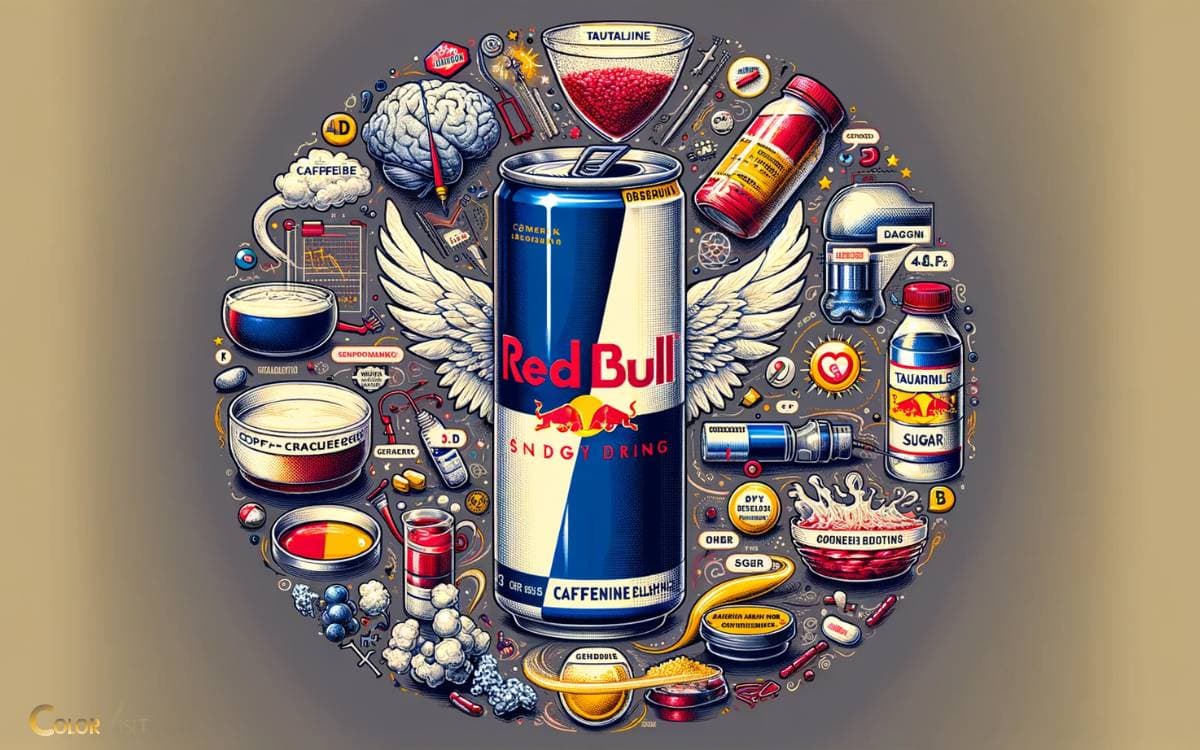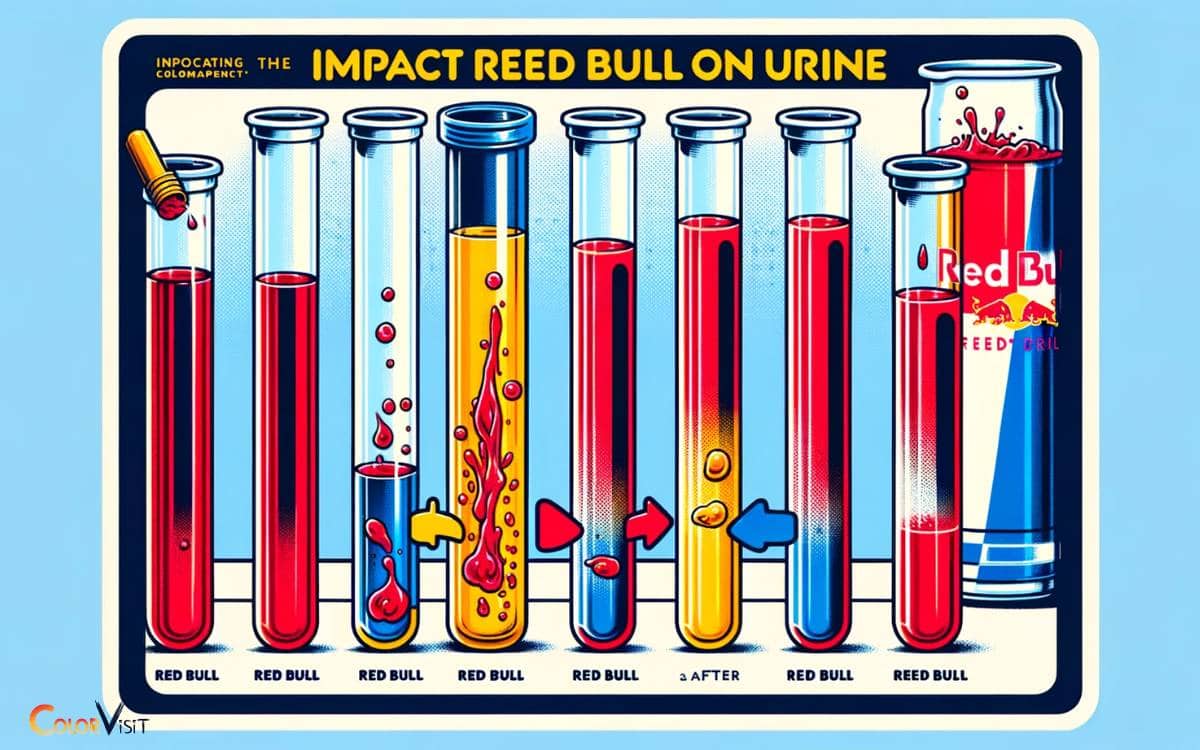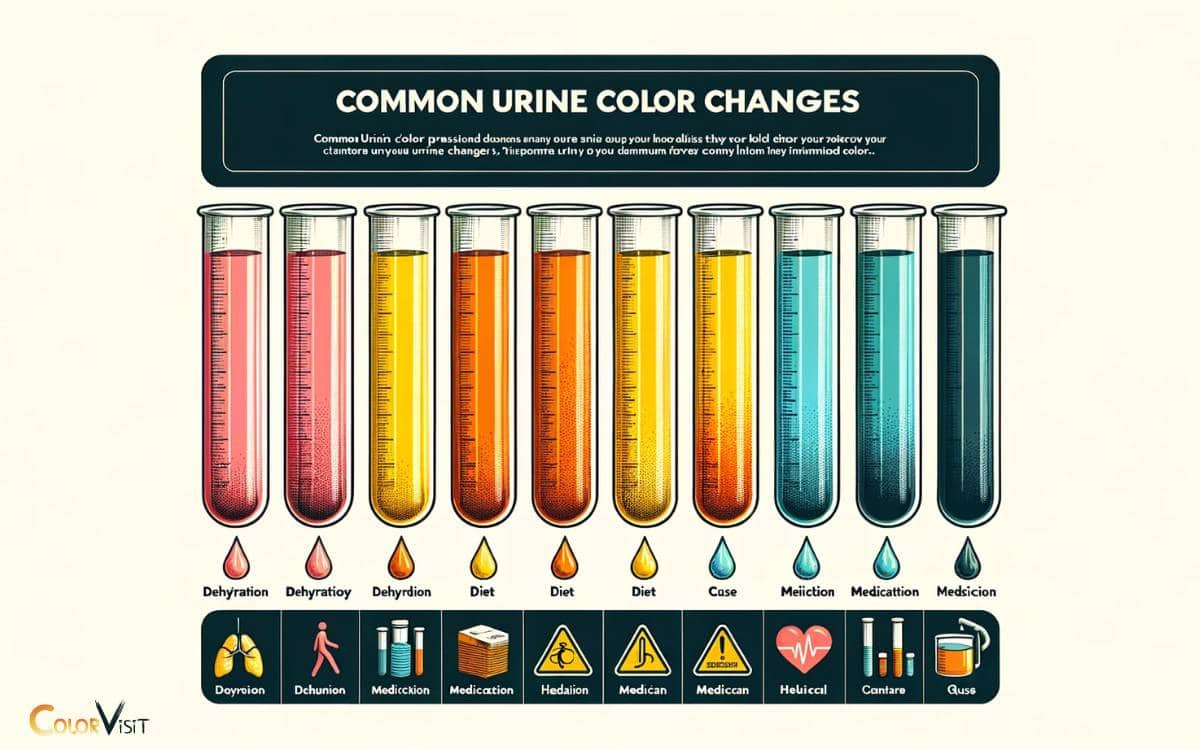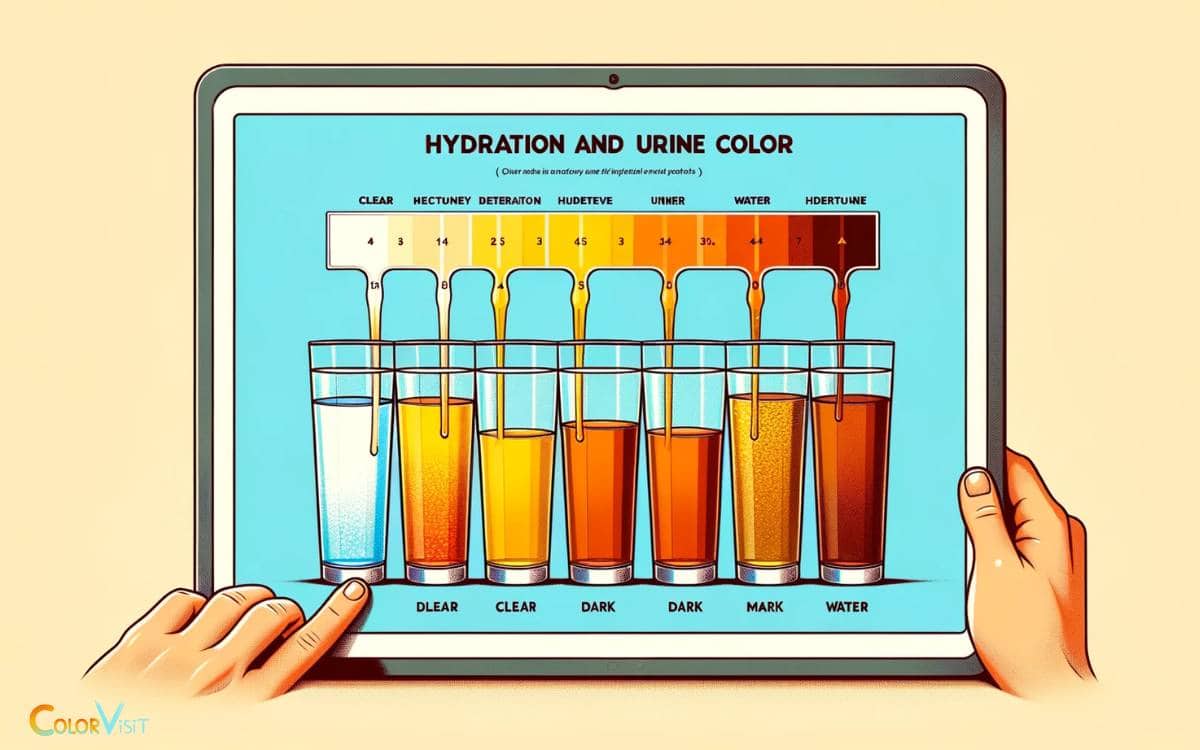Does Red Bull Change Urine Color? Yes!
Yes, Red Bull can potentially cause urine to appear a different color.
The color of your urine can often be a key indicator of your body’s hydration levels. Generally, a pale, straw-like color suggests good hydration, while darker, amber-colored urine may indicate dehydration.
Consuming Red Bull or other caffeinated drinks may lead to dehydration due to their diuretic effect, indirectly causing a change in urine color.
While Red Bull doesn’t directly change urine color, its caffeine content can lead to dehydration, which may darken urine.
Key Takeaway
Understanding Urine Color
The color of urine is an important indicator of hydration levels and overall health. It is a result of the concentration of waste products and chemicals such as urobilin, urochrome, and uroerythrin.
- Generally, a pale yellow to a light straw color indicates a well-hydrated and healthy individual, whereas darker shades may suggest dehydration or the presence of certain medical conditions.
- Innovations in healthcare have led to the development of tools like urine color charts that help individuals self-assess their hydration status and potential health issues.
- Understanding the nuances of urine color can empower individuals to take proactive measures to maintain proper hydration and monitor their health.
Therefore, paying attention to the color of urine can be a simple yet effective way to promote well-being.
Components of Red Bull
Exploring the components of Red Bull is essential to understanding its impact on the body, including its potential effect on urine color.
By examining the ingredients in Red Bull, we can gain insight into how these components might interact with the body’s natural processes.
This discussion will shed light on whether any specific Red Bull ingredients could potentially lead to changes in urine color.
Red Bull’s Impact
An analysis of the components of Red Bull reveals that it contains a variety of stimulating and energizing ingredients.
These components have a significant impact on the body, providing various benefits and effects.
The key components of Red Bull include:
- Caffeine: A well-known stimulant that enhances focus and alertness.
- Taurine: An amino acid that supports cardiovascular function and energy levels.
- B-vitamins: Essential for converting food into energy and supporting overall vitality.
- Sugars: Provide a quick source of energy, though excessive consumption may lead to negative health effects.
Red Bull’s carefully selected combination of these components is designed to deliver a rapid boost in physical and mental performance, making it a popular choice for individuals seeking a quick energy lift.
Effect on Urine
Continuously ingesting Red Bull can potentially impact the color of urine due to its stimulating components such as caffeine, taurine, B-vitamins, and sugars.
- Caffeine is a diuretic, which can increase urine production and potentially lead to dehydration, resulting in darker, more concentrated urine.
- Taurine, an amino acid found in Red Bull, may also contribute to changes in urine color when consumed in large quantities.
- Additionally, the B-vitamins, particularly vitamin B2 (riboflavin), present in Red Bull can cause urine to appear bright yellow or even fluorescent under certain conditions.
- The sugars in Red Bull can potentially affect urine color as well, especially in individuals with certain metabolic conditions.
It is important to note that while these components can impact urine color, individual responses may vary.
Impact of Red Bull on Urine
The impact of Red Bull on urine color has been a topic of interest due to the beverage’s unique ingredients and potential effects on hydration.
Understanding how Red Bull consumption may influence urine color can provide insight into its impact on the body’s hydration levels.
Exploring the relationship between Red Bull and urine color can shed light on the beverage’s potential effects on overall hydration status.
Red Bull Urine Color
Red Bull consumption can lead to a noticeable change in urine color. The impact of Red Bull on urine color is due to the presence of certain compounds and additives in the beverage.
Here’s how Red Bull can affect urine color:
- Dehydration: Red Bull, like other caffeinated beverages, can contribute to dehydration, which may result in darker urine color.
- Vitamin B: Red Bull contains high levels of vitamin B, particularly vitamin B2 (riboflavin), which can cause urine to appear bright yellow or even fluorescent in color.
- Metabolites: The body metabolizes the ingredients in Red Bull, and these metabolites may alter the color of urine.
- Health Considerations: Changes in urine color can sometimes indicate health issues, so it’s important to monitor any significant or prolonged alterations in urine color after consuming Red Bull.
Understanding the impact of Red Bull on urine color can help individuals make informed choices about their beverage consumption.
Hydration and Red Bull
The impact of Red Bull consumption on urine color can be influenced by hydration levels and the body’s metabolism of the beverage’s compounds and additives.
- Red Bull contains various substances such as caffeine, taurine, and B-vitamins, which can affect urine color. However, the key factor in determining the impact on urine color is hydration.
- When well-hydrated, the body is better able to metabolize and excrete the compounds present in Red Bull, potentially resulting in a lesser impact on urine color.
- Conversely, dehydration can lead to a more concentrated urine color, potentially intensifying the effects of Red Bull on urine.
Understanding the relationship between hydration and Red Bull consumption is essential for individuals seeking to assess the potential impact on urine color and overall health.
Common Urine Color Changes
An increase in fluid intake can commonly result in changes to urine color, often appearing lighter in hue. However, other factors can also contribute to variations in urine color.
Here are some common urine color changes to be aware of:
- Pale yellow: Adequate hydration can cause urine to appear pale yellow, indicating good hydration levels.
- Dark yellow: Dehydration can lead to dark yellow urine, signaling a need for increased fluid intake.
- Pink or red: This discoloration may be caused by the presence of blood in the urine, which could be a sign of various underlying health issues.
- Brown or tea-colored: It could indicate liver or kidney problems, and medical attention should be sought if this color is observed.
Understanding these color changes can provide valuable insights into one’s hydration status and overall health.
Hydration and Urine Color
When considering the relationship between hydration and urine color, it is important to understand the impact of fluid intake on the body’s excretory system.
- Hydration plays a crucial role in determining urine color as it directly affects the concentration of waste products excreted by the kidneys.
- Adequate hydration, achieved through the consumption of water and other hydrating fluids, generally results in lighter or clearer urine, indicating a well-hydrated state.
- On the other hand, insufficient fluid intake can lead to darker, more concentrated urine, signaling potential dehydration.
Monitoring urine color can serve as a simple yet effective indicator of hydration levels, allowing individuals to make informed choices about their fluid intake.
Conclusion
The consumption of Red Bull may lead to changes in urine color due to its components.
Understanding the impact of hydration and other factors on urine color is essential for maintaining overall health.
It is important to be mindful of the potential effects of energy drinks on bodily functions and to stay hydrated.
Taking care of one’s well-being includes being aware of the signals the body sends, even those that may be considered less comfortable to discuss.
